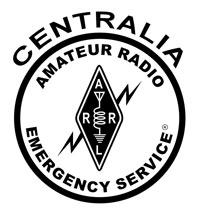A Brief History…
 Those of us who live and work in Western Washington regularly experience flooding, earthquakes, wind storms and the occasional volcanic eruption. It is the duty of the area’s police, fire and emergency medical teams to respond when needed to these natural disasters. Today, we have come to depend on fairly reliable communications systems such as radios, cell phones and mobile data computers. Unfortunately, these systems can and do fail. Without adequate communications, victims may not receive the attention they need and lives may be lost.
Those of us who live and work in Western Washington regularly experience flooding, earthquakes, wind storms and the occasional volcanic eruption. It is the duty of the area’s police, fire and emergency medical teams to respond when needed to these natural disasters. Today, we have come to depend on fairly reliable communications systems such as radios, cell phones and mobile data computers. Unfortunately, these systems can and do fail. Without adequate communications, victims may not receive the attention they need and lives may be lost.
The City of Centralia, in 2006, took steps to become responsible for its own emergency management. Comprehensive emergency management policies were completed and all departments in the city began training in the Incident Command System. While no lives were lost during the dramatic floods in December 2007, staff recognized the need for emergency management modifications.
Employees began intensive training in setting up and operating the City’s Emergency Operations Center, located on the second floor of City Hall. Riverside Fire Authority and the Centralia Police Department began bi-weekly planning and training sessions. A back-up EOC was established at the Riverside Fire Authority station on Harrison Avenue. Funds were spent to equip a mobile command and communications van and safety equipment such as personal floatation devices and waders were purchased.
City planners recognized the need for a fail-proof back-up communications system and in July 2008 began to assemble an Amateur Radio Emergency Services Team.
Why Amateur Radio Emergency Services?
The Amateur Radio Emergency Services (ARES) was created in 1935 by the American Radio Relay League (ARRL) to provide radio communications support to public services.
The Federal Communications Commission (FCC) established Part 97 of their rules “to provide an amateur radio service having a fundamental purpose as expressed in the following principles:
- (a) Recognition and enhancement of the value of the amateur service to the public as a voluntary noncommercial communications service with respect to providing emergency communications…
- (b) Expansion of the existing reservoir within the amateur radio service of trained operators, technicians and electronics experts. Ham radio operators have their own equipment and frequencies that can supplement those of public service agencies in time of need.”
Stated simply, Amateur Radio is able to maintain communications when all other communication systems fail. Amateur Radio equipment is operated independently by trained and licensed operators and cannot be compromised by acts of terrorism. Finally, Amateur Radio is capable of being operated by fairly simple emergency power systems.
Our mission is to support emergency communications for the City of Centralia and the agencies it serves.
Our responsibility is to become as professionally trained and as well equipped as possible to support the mission.

